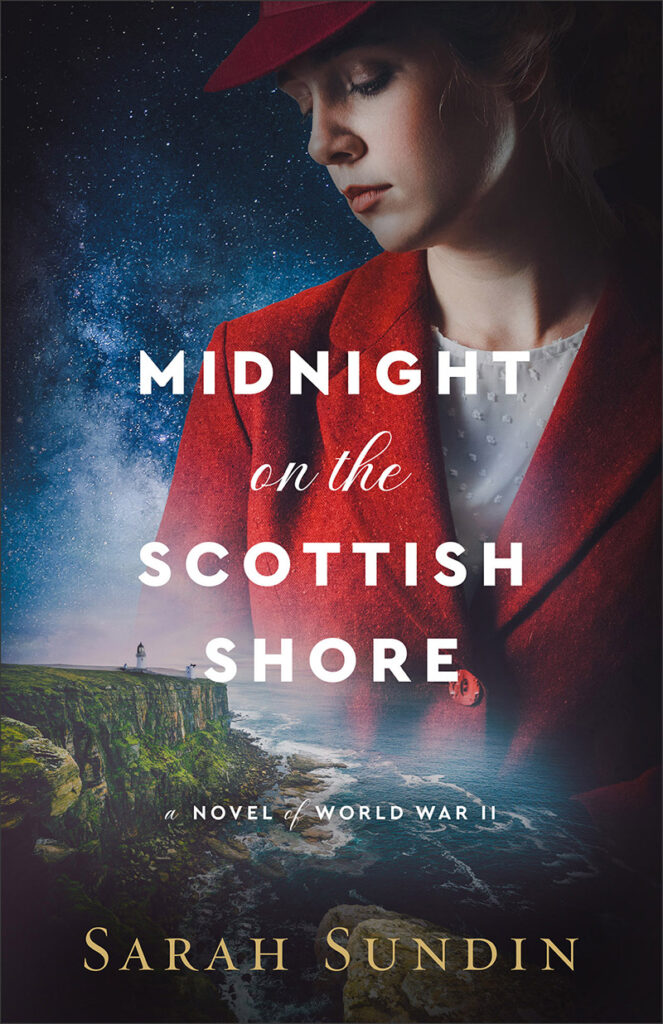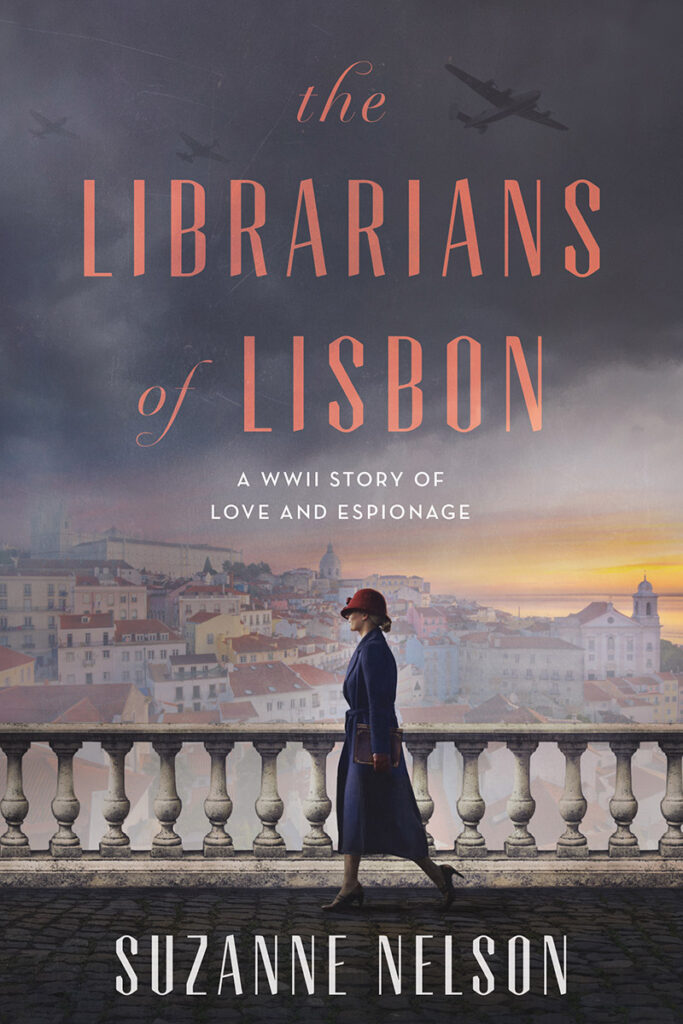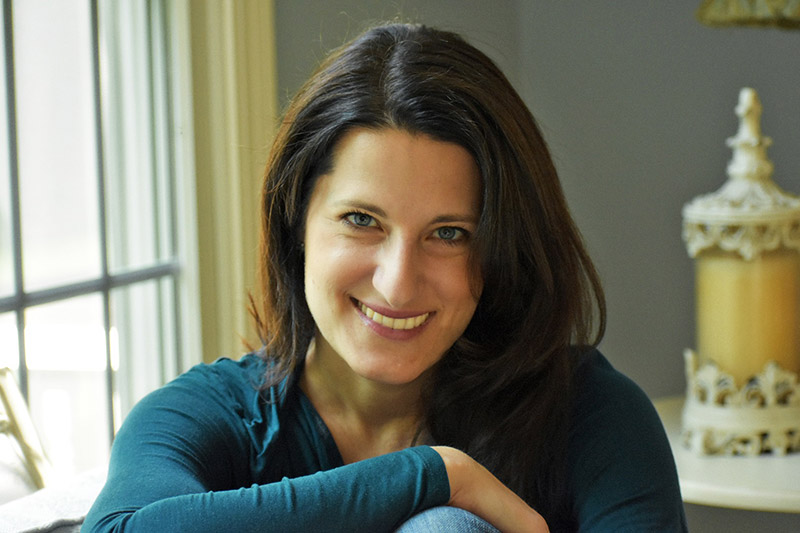The Umbrella Maker’s Son by Tod Lending shows the devastation brought upon to the Jewish community in Krakow after the Nazis invaded Poland. Midnight on the Scottish Shore by Sarah Sundin takes reader on a journey with an emphasis on the MI5’s Double Cross Program that had German spies becoming double agents. The Librarians of Lisbon by Suzanne Nelson takes place in neutral Portugal having the allied spies trying to gain the upper hand on their German counterparts.

The Umbrella Maker’s Son by Tod Lending has Reuven Berkovitz at the center of the story. Through his eyes, readers can see the brutality of the Nazis, as well as a local Polish farmer who has never met a Jew yet agrees to hide him because he needs help to work the farm. Unfortunately, the farmer’s wife is not as kind. Eventually Reuven must leave, embarking on a perilous journey through the Polish countryside, determined to reach the Kraków ghetto where he hopes to reunite with Zelda, whose life has also been forever changed by the horrors of the Nazi occupation and war.

Midnight on the Scottish Shore by Sarah Sundin has a plot as a member of the Dutch resistance who infiltrates the local Nazi Party to gather intel. Because it is becoming more dangerous for her, she decides to escape the country by coming up with a plan. She agrees to be trained as a Nazi spy and sent to the U.K.Once dispatched to Britain, she plans to abandon her mission and instead aid the Allies. But her scheme is thwarted when naval officer Lt. Lachlan Mackenzie finds her along the Scottish shore and turns her in to be executed except that British intelligence decides she is more valuable as a double agent.

The Librarians of Lisbon by Suzanne Nelson is a fast-paced roller-coaster ride of deceit, espionage, and danger inspired by real historical figures. The setting of Lisbon plays a significant role because Portugal was a neutral country filled with espionage, romance, and friendship. The main characters are two Boston librarians, Selene Delmont and Beatrice Sullivan, who are trained by the U.S. Office of Strategic Services (precursor to CIA) and assigned to work in Lisbon. Their day jobs are librarians, but they are also assigned missions for which they are sworn to secrecy, unable to reveal even to each other.
Below is an interview with all three authors.
Elise Cooper: Does the setting play a role in the story?

Sarah Sundin: My husband and I are part Scottish. He has been bugging me to write a book set here for years. As I explored it more, I found things that fascinated me. Then my youngest son, a mythology buff, gave me some suggestions, the Scottish legends, especially the story of the Selkie. It has a woman who lives as a seal at sea, but as soon as she comes to shore, she sheds her seal skin, turning into a beautiful woman. I started to imagine a German female spy landing in Scotland and being captured by this Scottish man who traps her on land by hiding her seal skin. In this case the skin was her rubber raft.

Tod Lending: there were numerous ghettos all over Poland, not just in Warsaw. In this book the setting was in Krakow. I talked about how the Germans cut off the Jews’ beards and took over ownership of Jewish businesses and belongings. They beat them, abused them, humiliated them, and hunted them as animals. What happened is beyond horrific and is unimaginable. I did do a lot of research. What Reuven and the other characters had gone through really happened. I did take a little writers’ poetic license with Reuven’s emotional and psychological reactions. I also had a Jewish historian review the book facts.

Suzanne Nelson: Lisbon Portugal had both Allied and Axis spies operating in the city simultaneously, plus, the city was a huge refuge for people fleeing occupied Europe. Unfortunately, they were stalled for weeks, months, and sometimes years because they did not have the correct exit papers. The refugees included exiled Royals who fled Europe, and famous writers and artists, including the Jewish co-authors Margaret and H. A. Rey, of the “Curious George series.” It was a surreal environment where refugees were gambling side by side with the Gestapo. Many times, no one knew who a friend or foe was. There was a real sense of loneliness, desperation, and danger among a lot of people.
Elise: Did you explore some historical significance in the book?
Tod: Reuven ponders the question of why some Jews survived. This thought came from the last documentary I made about two Holocaust survivors. They answered this question 1000 times and they always answered, ‘it was a miracle.’ I asked them was it luck, smarts, and willpower? One story after another was told how if they had crossed the street at a different moment, they would have been dead. There is a quote by Reuven, ‘Without rhyme or reason, chance had saved me once again.’
Sarah: The Double Cross Program was established in September 1940. The German military intelligence sent out spies to the United Kingdom. MI5, Britian’s intelligence group, caught every single one of the German agents. Germany never had an effective agent during the war. Of the Abwehr (German) Agents caught, sixteen were executed, but about three dozen were turned into double agents. Some were extremely effective including one agent that convinced the Germans that the D-day invasion was not going to Normandy but Pas de Calais. Regarding Cilla, I knew there were Dutch women agents who landed in Scotland, so I created my own character. She is much milder than the real spies.
Suzanne: In the book I explain about wolfram. It is a mineral that contains a metal, Tungsten. It is used in artillery manufacturing, creating impenetrable armor. Salazar, the Portuguese Prime Minister, allowed the trade to be with both the Axis and Allied countries until a few months prior to D-Day and suspended the trade for both. There was black marketing dealings and smuggling going on with the Portugal PM looking the other way. In the story Bea and Gable must discover who was selling large amounts of wolfram to the Nazis.
Elise: How would describe your main character(s)?
Suzanne: Selene is charming, a thrill seeker, enthusiastic, brazen, estranged from her family, impatient, affluent upbringing, determined, and impetuous. She is also a reluctant seductress because she does not want to be known as a spy who only uses her looks and beauty to get information, but someone who can use her mind. Bea is reserved, quiet, has lost her parents, has a photographic memory, wants to be challenged, good instincts, and motivated. They were good friends, loyal, and Bea was Selene’s lifeline. Selene wanted adventure, to take the world by storm, and dragged Bea along for the ride. But at the end of the book Bea was the one who has found her bravery, while Selene went home wounded.
Sarah: Cilla is the double agent. She is fun loving, free spirited, and wants her freedom. She is confident, kind, respectful, lonely, isolated, determined, courageous, loyal, witty, and headstrong. She is trustworthy but no one sees her that way, so she needs to prove herself to them. Lachlan is the British naval officer who captures Cilla. He is determined, frustrated, honorable, ingenious, passionate, honest, vulnerable, dedicated, and protective. They are opposites that attract. At first, he only saw her as a German spy. They are forced to work together and the more they spend time together they see each other’s true character, willing to trust each other.
Tod: Reuven is a young Jewish man who persevered. Resilient with a spirit that carried on. He had an inner drive to live. He was protective, grief-stricken, terrified, fearful, lonely, felt hopeless and guilty. But he also was brave. At the beginning of the book, he was well adjusted and was trying to fulfill his dreams. As things fell apart as the Nazis took over, he became shameful and humiliated. Feelings like fear, grief, guilt, and insecurity began to emerge as a reaction to the traumas he suffered. There were times he was fearful, but also times where he was fearless, times he felt completely numb, and for a moment he felt suicidal. Zelda is the girl he wanted to marry and whom he searched for throughout the book. When he is reunited with her, he realizes she has built a wall and tried to avoid him even though she was lonely. She is very traumatized having feared her brothers dead and she was sexually abused. Zelda felt she was not worthy because of her shame. She crawls into her shell to protect herself. But as time goes by, she does show him how much she cares for him, yet he sees her as quiet, withdrawn, and distant.
Elise: Is there a secondary character(s) that is important to the story?
Tod: Kaja, the Polish farmer’s wife. At first, he was shocked and scared of her because she was profoundly antisemitic. What they both shared is loneliness. She did not want to be on the farm and fantasized in living in the city. She controlled him with Reuven terrified of her and feeling overpowered by her, while at the same time there were tender gentle moments because of the loneliness. He saw her as suspicious, unpredictable, angry, moody, distant, and seductive. The Polish farmer, Stanislaw saw Reuven as a son to him, while at other times he treated him like one of the farm animals. He was illiterate but had farm knowledge. They respected and trusted each other including giving Reuven a sense of pride. At times Stanislaw could be determined and reckless. Reuven saw him as a model of manhood because of his strength.
Sarah: Neil, Lachlan’s brother. Their backstory emphasizes a house divided with a long history of betrayal. Neil has hurt Lachlan deeply and Neil was hurt by Lachlan even though he did his duty. They hate each other. Neil was rude, unkind, treacherous, angry, and resentful. Lachlan is fighting for the allies while Neil has fallen in with a group of Scottish separatists. The real separatists were a fringe group before the war that continued during the early years of the war. They did not want to be a part of the allied war effort because they saw it as the “English War.” Neil was involved with this group and was imprisoned because he refused to register for conscription. He feels that Lachlan has portrayed Scotland by wearing an English uniform. I put in this book quote, ‘The Germans love to divide. That is how they conquer.’ If they saw a separatist group, they supported it.
Suzanne: Agent Gable was loosely based on Agent Garbo, a famous double agent with MI5 who had operated in Lisbon for about a year. I wanted to include a version of him in the story. He appears to be a narcissist. He is charming, a charlatan, double agent, has a temper, volatile, and blunt, with a lot of confidence. He is attracted to Bea but wants to control his feelings and wants to be the one in control. She enjoys putting him in his place. Luca was inspired by a historical figure, Aristides de Sousa Mendes. His nickname was the Oskar Schindler of Portugal. He was the consul general who worked in France and signed 1000s of visas to allow people into Portugal even though the Portuguese PM, Salazar, forbid it. He ignored the rule and disobeyed the orders. He was blacklisted in Portugal with a tragic ending. I wrote Luca with a conscience, someone vulnerable, has built walls, moody, determined, bitter, wounded, heroic, an outcast, and gruff. Selene gave him hope, redemption, and love.
THANK YOU!!
